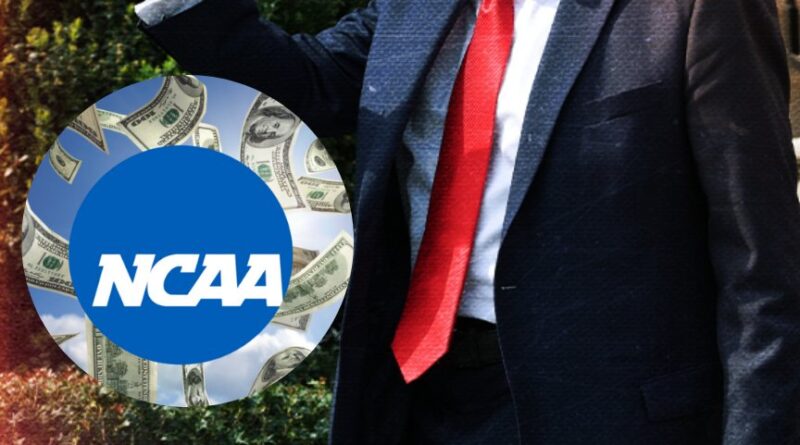Trump’s Superficial Endeavor to Retain Amateurism in College Football
The notion that Donald Trump can rectify the situation of college football is one that he has propagated, a sentiment perceived as bolder than his promise of solving the Ukraine crisis on the commencement of his presidency. Purporting to construct a barrier between Big Ten and SEC, Trump has expressed a project that aims to save college sports through the institution of a freshly signed executive order. This order is designed to restore a balanced approach in the contemporary college sports world, which has been rocked by multi-million-dollar name, image, and likeness (NIL) deals, constant transferrals, and an ambiguous revenue sharing plan. Under Trump’s order, the Secretary of Labor and the National Labor Relations Board are directed to consider the status of college athletes as employees, with the Department of Justice and Federal Trade Commission enforcing the ‘amateur model’ of college sports and prohibiting payments by booster-funded third-party to student athletes.
The belief that an executive order can remedy the complications the college football world is grappling with is ungrounded. The confident tone of the order doesn’t correspond with its real power, which is nothing beyond a stern suggestion. Executive orders extend only to federal entities, excluding them from having any jurisdiction over state-based schools, politicians, private universities, and athletic divisions. Possessing the propensity of being easily overturned by courts, executive orders are relatively vulnerable.
The billion-dollar transformation of college football, propelled by booster-influences, isn’t the result of an impulsive decision by the NCAA to grant athletes a significant financial advantage. Rather, it was the product of judicial influences. The Supreme Court issued a conclusive 9-0 verdict in the NCAA v. Alston case which undermined the NCAA’s restriction on education-related benefits. This move effectively unlocked the path for college athletes to receive payment. And with several state politicians passing their own NIL laws, the NCAA relinquished its opposition.
Currently, student athletes are cashing in on NIL deals, with schools also paying players directly due to the House settlement – up to $20.5 million annually for every school. This practice is gradually transforming college sports into a pay-to-play scheme, steering it away from its simple, uncommercial love for the game. College football has thus become a professional sport, albeit lacking the accountability that parallels professionalism. The arrival of Trump’s executive order on the scene only contributes to political rhetoric, bringing no substantial reform.
Trump’s aspiration to deter affluent boosters from auctioning top recruits underscores a miscalculation about the evolving dynamics of NIL and who maintains real control. The newly established College Sports Commission (CSC) quickly retracted one of its initial mandates—an extensive prohibition on booster-funded NIL groups that pay players directly. The CSC’s revised stance allows these groups to continue operation, given their NIL deals hold ‘valid business purpose’ and are arranged for profit. Nevertheless, the CSC appears under-equipped to monitor this system filled with potential exploitations.
Ultimately, Trump’s executive order is a superficial attempt at control, creating an illusion of order without any real efficacy. The president doesn’t have the ability to change court rulings or prevent states from implementing NIL laws favoring boosters. An executive order in this context is as ineffective as attempting to stop a cyclone with a ‘No Entry’ sign. The only viable solution is to rethink the entire system.
Today, the NCAA stands as a beleaguered agency, pleading for assistance from Congress. The Power Four conferences run like separate sports leagues with their own media networks, unregulated and independent. Athletes are empowered and litigious, and have been strengthened by their recent wins in court. Boosters appear to control a form of disguised payroll operating under the facade of marketing firms. The expectation that a singular directive from the presidency could unravel this complicated web is, quite bluntly, misguided. The solution for college football does not lie in the intervention of a president, but in a comprehensive systems overhaul.

